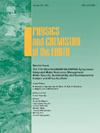城市抗洪能力和风险的综合策略:基于政策、基础设施和生态系统的干预措施的荟萃分析
IF 4.1
3区 地球科学
Q2 GEOSCIENCES, MULTIDISCIPLINARY
引用次数: 0
摘要
气候变化和快速城市化加剧了城市洪水,需要强有力和有效的抗灾战略。然而,关于这些战略的相对有效性的经验证据仍然有限。本研究提出了首个综合评价城市抗洪能力干预措施的元分析,涉及机构、基础设施和社会生态领域。通过综合29项同行评议研究(2000-2024)的数据,本研究采用标准化效应量(Cohen’s d)和元回归模型来评估不同策略的有效性。结果显示总体效果显著(合并d = 2.96, 95% CI:[1.92, 3.99]),异质性高(I2 = 93.8%)。体制机制,如政策协调、监管框架和风险治理,始终显示出最强和最显著的统计影响(d≈2.96)。低影响发展(LID)表现出有限的、不显著的影响(d≈0.08)。本研究引入了一种跨越不同维度的分层弹性框架,并建立了基于证据的城市洪水弹性策略类型学。这些发现强调了综合、多层次治理和因地制宜的规划在增强城市抗洪能力方面的重要性。研究结果为在洪水易发城市地区实施韧性战略提供了重要见解,并为制定适应性和可持续的城市政策提供了支持。本文章由计算机程序翻译,如有差异,请以英文原文为准。
Integrative strategies for urban flood resilience and risk: A meta-analysis of policy, infrastructural, and ecosystem-based interventions
Urban flooding, intensified by climate change and rapid urbanization, demands robust and operationally effective resilience strategies. However, empirical evidence on the comparative effectiveness of such strategies remains limited. This study presents the first meta-analytic synthesis evaluating urban flood resilience interventions across institutional, infrastructural, and socio-ecological domains. By synthesizing data from 29 peer-reviewed studies (2000–2024), this study applies standardized effect sizes (Cohen's d) and meta-regression models to assess the effectiveness of different strategies. Results reveal a substantial overall effect (pooled d = 2.96, 95 % CI: [1.92, 3.99]) with high heterogeneity (I2 = 93.8 %). Institutional mechanisms, such as policy coordination, regulatory frameworks, and risk governance, consistently show the strongest and most statistically significant impacts (d ≈ 2.96). Low Impact Development (LID) demonstrates limited, non-significant effects (d ≈ 0.08). The study introduces a novel hierarchical resilience framework spanning different dimensions and establishes an evidence-based typology of urban flood resilience strategies. These findings highlight the importance of integrated, multi-level governance and context-specific planning in enhancing urban flood resilience. The study findings provides critical insights for implementing resilience strategies in flood-prone urban areas, and support the formulation of adaptive and sustainable urban policies.
求助全文
通过发布文献求助,成功后即可免费获取论文全文。
去求助
来源期刊

Physics and Chemistry of the Earth
地学-地球科学综合
CiteScore
5.40
自引率
2.70%
发文量
176
审稿时长
31.6 weeks
期刊介绍:
Physics and Chemistry of the Earth is an international interdisciplinary journal for the rapid publication of collections of refereed communications in separate thematic issues, either stemming from scientific meetings, or, especially compiled for the occasion. There is no restriction on the length of articles published in the journal. Physics and Chemistry of the Earth incorporates the separate Parts A, B and C which existed until the end of 2001.
Please note: the Editors are unable to consider submissions that are not invited or linked to a thematic issue. Please do not submit unsolicited papers.
The journal covers the following subject areas:
-Solid Earth and Geodesy:
(geology, geochemistry, tectonophysics, seismology, volcanology, palaeomagnetism and rock magnetism, electromagnetism and potential fields, marine and environmental geosciences as well as geodesy).
-Hydrology, Oceans and Atmosphere:
(hydrology and water resources research, engineering and management, oceanography and oceanic chemistry, shelf, sea, lake and river sciences, meteorology and atmospheric sciences incl. chemistry as well as climatology and glaciology).
-Solar-Terrestrial and Planetary Science:
(solar, heliospheric and solar-planetary sciences, geology, geophysics and atmospheric sciences of planets, satellites and small bodies as well as cosmochemistry and exobiology).
 求助内容:
求助内容: 应助结果提醒方式:
应助结果提醒方式:


